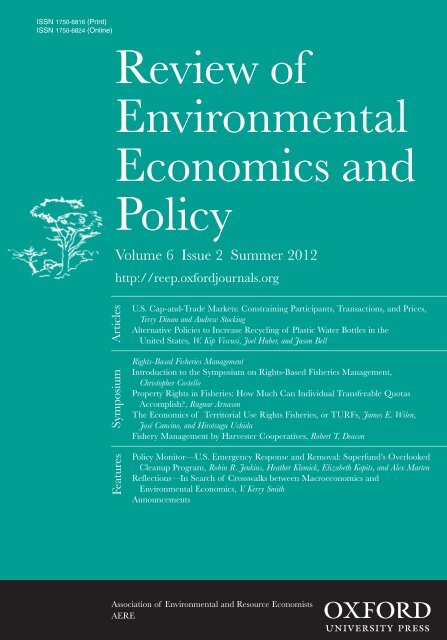气候共享领域的合作
IF 6.6
3区 经济学
Q1 ECONOMICS
引用次数: 67
摘要
气候变化是一种全球外部性,事实证明,由于减缓气候变化的公益性质和缺乏执行全球条约的超国家机构,仅通过正式机构很难解决这一问题。鉴于这些可以说是国际合作最具挑战性的情况,承诺问题和鼓励各国推迟代价高昂的缓解努力是达成有效环境协定的主要障碍。从这个前提出发,我们考察了国内的减缓努力,目的是评估个人自愿为减缓气候变化的公共利益做出贡献的意愿可以扩大到全球水平的程度。虽然个别环境行动显然不足以实现雄心勃勃的全球缓解目标,但我们认为,它们仍然是朝着正确方向迈出的初步和必要步骤。事实上,如果地方干预鼓励有利于大规模变革的规范和行为的转变,个人和社区的努力可能特别重要。考虑到这一点,我们讨论了规范可见性的重要性和信念在缺乏可见性时的作用,以及它们对利用合作行为增加地方和全球气候减缓努力的影响。本文章由计算机程序翻译,如有差异,请以英文原文为准。
Cooperation in the Climate Commons
Climate change is a global externality that has proven difficult to address through formal institutions alone due to the public good properties of climate change mitigation and the lack of a supranational institution for enforcing global treaties. Given these circumstances, which are arguably the most challenging for international cooperation, commitment problems and free-riding incentives for countries to delay costly mitigation efforts are major obstacles to effective environmental agreements. Starting from this premise, we examine domestic mitigation efforts, with the goal of assessing the extent to which the willingness of individuals to contribute voluntarily to the public good of climate mitigation could be scaled up to the global level. Although individual environmental actions are clearly insufficient for achieving ambitious global mitigation targets, we argue that they are nevertheless initial and essential steps in the right direction. In fact, individual and community efforts may be particularly important if local interventions encourage shifts in norms and behaviors that favor large-scale transformations. With this in mind, we discuss the importance of the visibility of norms and the role of beliefs when such visibility is lacking and their implications for leveraging cooperative behavior to increase climate mitigation efforts locally and globally.
求助全文
通过发布文献求助,成功后即可免费获取论文全文。
去求助
来源期刊
CiteScore
10.80
自引率
0.00%
发文量
25
期刊介绍:
The Review of Environmental Economics and Policy fills the gap between traditional academic journals and the general interest press by providing a widely accessible yet scholarly source for the latest thinking on environmental economics and related policy. The Review publishes symposia, articles, and regular features that contribute to one or more of the following goals: •to identify and synthesize lessons learned from recent and ongoing environmental economics research; •to provide economic analysis of environmental policy issues; •to promote the sharing of ideas and perspectives among the various sub-fields of environmental economics;

 求助内容:
求助内容: 应助结果提醒方式:
应助结果提醒方式:


